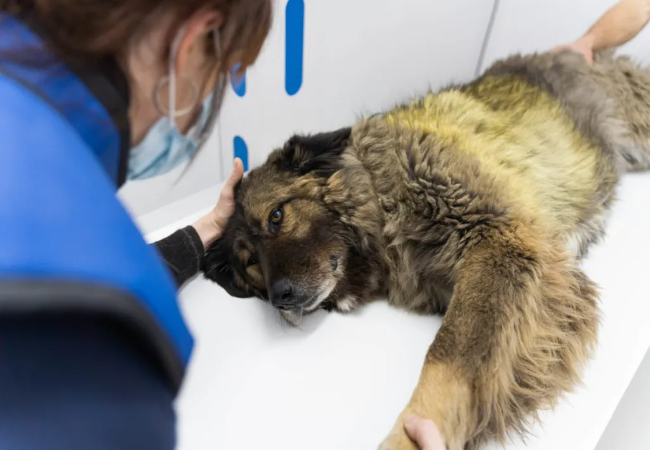Vet’s 2025 Guide to Glomerulonephritis in Dogs – Causes, Diagnosis & Management 🐶

In this article
Vet’s 2025 Guide to Glomerulonephritis in Dogs – Causes, Diagnosis & Management 🐶
By Dr. Duncan Houston BVSc
💡 What Is Glomerulonephritis?
Glomerulonephritis is inflammation of the kidneys’ glomeruli—tiny capillary tufts that filter waste. This is most often due to immune-complex deposition, damaging the filtration barrier and causing protein leakage into urine.
⚠️ Who’s at Risk?
- Immune-mediated disease, infections, cancer, drugs, or toxins can trigger it.
- Familial predisposition: breeds include Bernese Mountain Dogs, Cocker Spaniels, Doberman Pinschers, Samoyeds, Greyhounds, Rottweilers, Soft‑Coated Wheaten Terriers, Shar‑Peis, Collies, Beagles, Retrievers.
- Age: Typically middle-aged (6–7 yrs), but familial forms may show in puppies.
🧩 Common Signs
- Proteinuria—hallmark feature detected via UPC test or microalbuminuria.
- Hypoalbuminemia → edema, ascites, and ascites-related breathing issues.
- Hypercholesterolemia and hypertension; risk for thromboembolic events & sudden blindness.
- Progress to chronic kidney disease—signs include PU/PD, vomiting, anemia, and weight loss.
- Occasionally, hematuria and hypertension-related ocular signs.
🔬 Diagnostic Steps
- Urinalysis: detect proteinuria, casts; confirm with UPC ratio.
- Bloodwork: CBC, chemistry for albumin, cholesterol, BUN, creatinine.
- Blood pressure: monitor for hypertension contributing to damage.
- Imaging: Ultrasound/x-ray to evaluate kidneys and rule out masses.
- Kidney biopsy: definitive diagnosis when immune intervention is considered.
💊 Treatment & Management
- Address the underlying cause (infection, cancer, autoimmune) when possible.
- ACE inhibitors (e.g., benazepril) to reduce protein loss.
- Antithrombotic therapy: low-dose aspirin or clopidogrel to prevent clotting.
- Omega‑3 supplements & low-dose immunosuppressives (steroids, azathioprine) in immune-mediated cases.
- Control hypertension: ACE‑i, +/- amlodipine if needed.
- Kidney‑support diet: low‑protein, low‑phosphorus, moderate sodium to reduce renal workload.
- Fluid support & manage CKD complications, e.g., anemia, acid-base imbalance.
📈 Prognosis & Follow‑Up
- Early detection and management can prolong life; proteinuria reduction is key.
- Regular monitoring: UPC, BP, kidney values every 1–3 months initially.
- Nephrotic syndrome or advanced CKD has a guarded prognosis, but many dogs stabilize.
🛡️ Prevention & Best Practices
- Routine screening—urine and BP checks—in at-risk breeds and during wellness exams.
- Good dental care: treat periodontal disease to reduce immune triggers.
- Avoid long-term nephrotoxic drugs unless necessary; monitor renal health.
📲 Owner Resources & Tools
- Ask A Vet: Telehealth for support on testing, meds, and diet adjustments.
🌟 Case Snapshot
Case: Luna, a 7-year-old Cocker Spaniel, was found with mild proteinuria during screening. Benazepril + renal diet controlled her proteinuria to <0.5 UPC, stabilized kidney values, and she remains active and well monitored. 🐶
✅ Key Takeaways
- Glomerulonephritis is a serious—often immune-mediated—kidney disease marked by proteinuria.
- Early diagnosis through urinalysis, BP, and biopsy improves outcomes significantly.
- Treatment focuses on reducing protein loss, controlling BP, and supporting the kidneys.
- Routine follow-up and diet are essential to long-term management.
- Ask A Vet is your partner for ongoing care and expert support 🩺🐾
📥 Need Guidance?
Concerned about your dog’s kidney health? Download the Ask A Vet app for live support on testing, treatment, and care strategies. Visit AskAVet.com now for dedicated veterinary advice. 🐾🩺






